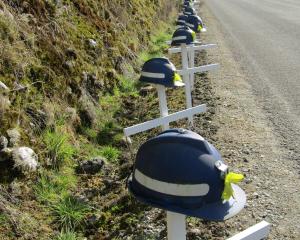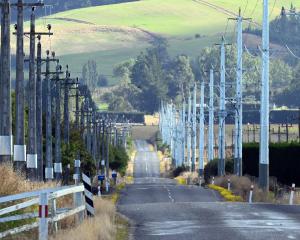The debate around the control of lagarosiphon in Otago in general and Lake Dunstan in particular is becoming heated.

The aquatic and exotic pest plant lagarosiphon (oxygen weed) ''chokes waterways and spreads rapidly, displacing native plants and making swimming and other water-based leisure activities less pleasant'' states the Otago Regional Council (ORC) on its website.
According to the multi-agency Lake Dunstan Aquatic Weed Management Group, the pest plant now ''saturates'' Lake Dunstan, and is present upstream in both the rivers feeding the lake. It also poses a considerable risk to all uninvaded waterways in Otago, having had a dramatic effect upon water-based recreation in its current host.
Given these admissions, you would expect the ORC - statutorily responsible for pest management and control in our region - to be taking leading and funding roles, wouldn't you? But, no.
The ORC spends nothing on lagarosiphon control in Lake Dunstan and has no intention in its draft annual plan to correct that neglect.
Instead it sidesteps its responsibility by deferring leadership to Land Information NZ (Linz) and considers its involvement in the ineffectual multi-agency group above to be sufficient. It is an appalling abrogation of environmental duty.
As a result, the lake gets sprayed with the poison Diquat (a fast-acting contact herbicide) before summer and the pest plant continues its relentless march through Otago's rivers and waterways. Even this poison attempt at control has failed: the weed was growing uncontrolled in sprayed areas by summer's end.
Last month, I was guest speaker at a well-organised and well-attended public meeting in Cromwell organised by the Guardians of Lake Dunstan. This group of activist locals has done an excellent job of reflecting community concern as to their lake's state, and demanding proper responses from statutory bodies.
I made the point at that meeting that this exotic, invasive plant species - which has annihilated all native aquatic plant species - requires a much more direct and funded approach than has been the case to date. It's a point I have directly made at almost every ORC meeting.
Here is an organisation - with no debt, $56million of reserves and owning an asset worth over $500million (Port of Otago/Chalmers Properties) - spending pitifully small sums of money on protecting, preserving and enhancing Central Otago/Lakes' waterways. And, in Lake Dunstan's case, nothing.
Yet this same organisation has decided to prioritise the construction of a new $30 million headquarters building in Dunedin. Not just the wrong priority but the wrong decision. A complete waste of ratepayers' money that will contribute no benefit towards resolving the knotty environmental and economic issues impacting upon Otago.
At that public meeting last month, Murray Neilson had his say. He is on record as saying lagarosiphon is a good thing. That this plant pest provides a great habitat for his and his fellows' trout fishing.
Unsurprisingly, I labelled such arguments absurd. We debated and Mr Neilson left the meeting along with his fellow signatory to his article. Others apologised to the meeting for his emotive remarks.
Meanwhile local trout guides and fishers noted the lagarosiphon has extended well beyond beneficial. It has clogged the upper reaches of the lake and is negatively impacting upon fishing and catches. They concede it is an unappealing eyesore.
As I write this article, I have responded to an email from a colleague at the ORC informing me there is now no priority for a review of the council's pest management strategy - dating back to 2009 - because there will be no funding for such until the next financial year.
I'm sure readers will understand the frustration. At a time when lake snot impacts dramatically upon Lakes Wanaka and Hawea, that lagarosiphon smothers parts of Lake Dunstan and infests the Kawerau and Clutha rivers, that rabbits run rampant over much of Central Otago (and the delivery of the Korean virus has been botched), the ORC seems to be sitting on its hands.
I'm not alone in such frustration. It is felt by most of those who reside in the Dunstan Ward comprising Central Otago and the Queenstown Lakes districts.
We look at the council's financial reserves. We look at the long-established environmental, science, water and pest issues in our midst. And we look at the ORC's desire to construct a new building in downtown Dunedin.
And we ask the same question: shouldn't the council do better than this?
-Michael Laws is an Otago regional councillor.











